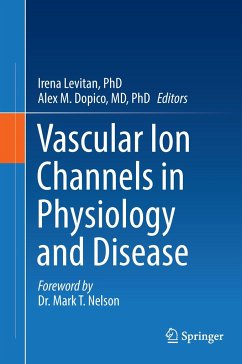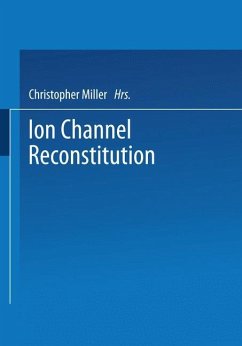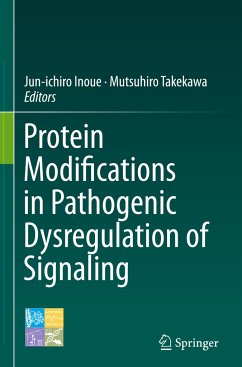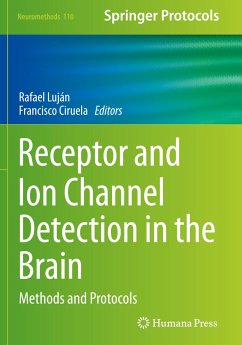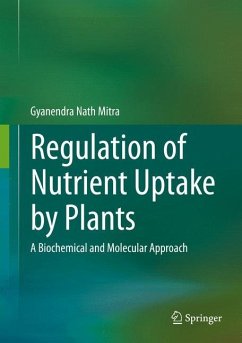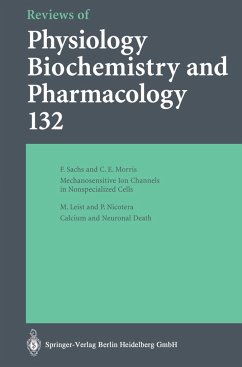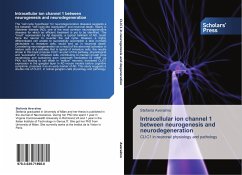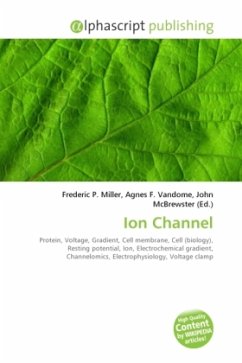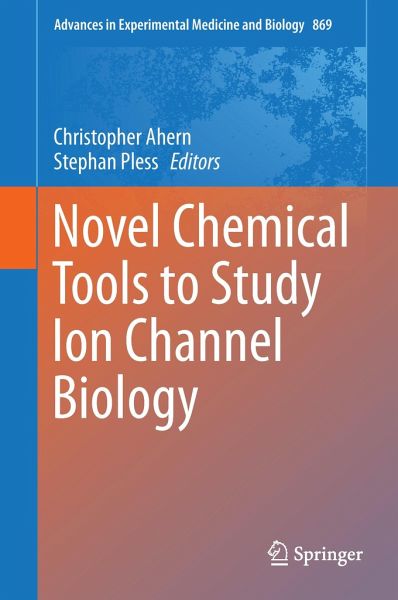
Novel Chemical Tools to Study Ion Channel Biology

PAYBACK Punkte
19 °P sammeln!
This volume describes chemical approaches to assess ion channel structure, function and pharmacology. Topics discussed include the use of engineered ionizable side chains to obtain information on permeation pathways and the local environment; the modification of engineered cysteine side chains, including cysteine scanning mutagenesis and the attachment of fluorescent probes and bio-reactive tethers; and the nascent use of genetic code expansion, evaluating its applications to ion channel and membrane proteins. This comprehensive text provides multifaceted perspectives on the great diversity of state-of-the-art methods which take advantage of the ever-expanding chemical toolbox to study ion channel biology.
Capturing the contributions and innovations of renowned laboratory researchers in transmembrane protein study for the first time, this book is comprehensive in scope. It covers a wide array of experimental approaches: photochemistry, novel biological tools, and innovative spectroscopy, all combined with traditional techniques of electrophysiology and molecular biology. Novel Chemical Tools to Study Ion Channel Biology, part of the bestselling Advances in Experimental Medicine and Biology series is ideal for researchers and advanced students interested in biochemistry, biophysics, fluorometry, electrophysiology, and chemical biology.
Capturing the contributions and innovations of renowned laboratory researchers in transmembrane protein study for the first time, this book is comprehensive in scope. It covers a wide array of experimental approaches: photochemistry, novel biological tools, and innovative spectroscopy, all combined with traditional techniques of electrophysiology and molecular biology. Novel Chemical Tools to Study Ion Channel Biology, part of the bestselling Advances in Experimental Medicine and Biology series is ideal for researchers and advanced students interested in biochemistry, biophysics, fluorometry, electrophysiology, and chemical biology.





